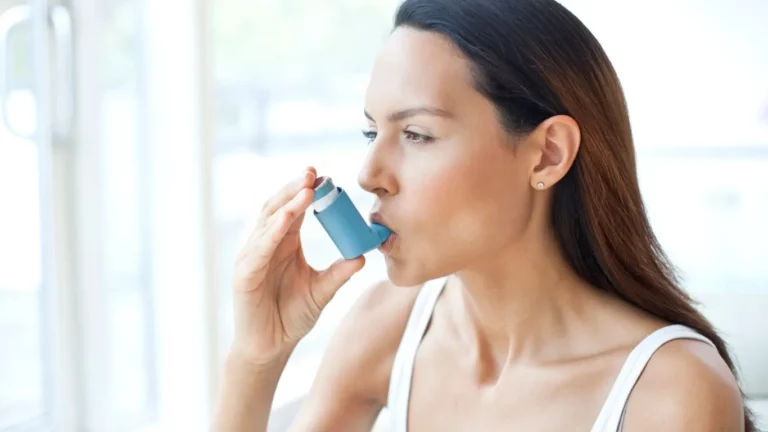Fast Relief for GERD Chest Pain: Proven Techniques That Work
There’s nothing quite like the panic that sets in when you feel that familiar tightness or burning across your chest. Is it heartburn? Or something worse? If you’ve ever dealt with GERD-related chest discomfort, you know how quickly it can ruin your day—or night. The good news? There are fast and effective ways to ease that pain and get back to feeling like yourself. I’ve lived through it, and I’ll walk you through what actually helps—starting now.
Quick Relief Strategies You Can Try Immediately

1. Antacids That Work Within Minutes
Let’s be real. When the burning hits, we want relief now—not hours later. Fast-acting antacids like calcium carbonate (Tums, Rolaids) can start neutralizing stomach acid within minutes. Keep a bottle nearby for those sudden flare-ups, but don’t rely on them as a long-term fix.
2. Sip on Water or Low-Fat Milk
Sometimes, a few sips of cool water or non-fat milk can soothe the esophagus and flush down any lingering acid. Just don’t overdo it—gulping large amounts quickly might backfire by distending the stomach.
3. Change Your Posture Right Away
Stand up. Sit tall. Don’t lie down. Seriously. Reclining when reflux hits is like giving gravity permission to let acid run wild. I keep a wedge pillow handy just for this reason.
Proven Habits That Help Prevent Future Flare-Ups

Eat Smarter, Not Just Less
Big meals used to be my downfall. These days, I go for smaller, low-acid meals spread throughout the day. Think roasted veggies, oatmeal, grilled chicken. Heavy, fatty meals = reflux city. Need GERD-friendly food ideas? Try our acid reflux eating guide for inspiration.
Watch the Clock—Especially at Night
Eating late is one of the sneakiest causes of chest pain. I now cut off food 2–3 hours before bedtime, and I’ve seen a massive drop in nighttime flare-ups.
Elevate That Headboard
If GERD tends to strike overnight, elevating the head of your bed by 6–8 inches (or using a wedge pillow) can help keep acid where it belongs. You’ll be surprised how much this one change improves your mornings.
Medications That Actually Help with Recurring Pain

Long-Term Relief Options
- H2 Blockers: These reduce acid production and work within a few hours. Great for mild to moderate GERD.
- Proton Pump Inhibitors (PPIs): These are stronger and meant for persistent cases. They help heal acid damage, but consult your doctor before long-term use.
What worked for me? A short course of omeprazole combined with dietary changes. It wasn’t magic, but it brought real results within a few weeks.
Alternative Remedies—Use with Caution
Some people swear by ginger tea or slippery elm, and they might offer relief. But talk to a healthcare provider before starting herbal supplements, especially if you’re already on medication.
When to Worry and What to Do About It

Know the Difference Between GERD and Heart Trouble
Let’s not sugarcoat this—chest pain always deserves attention. If the pain is crushing, radiates to your jaw or arms, or comes with dizziness or sweating, go to the ER. But if your doctor has already confirmed GERD and the pain fits the pattern, here’s what you can do to manage it smartly and quickly.
Track and Tweak
What you eat, when you eat, how you sleep—it all matters. I started keeping a simple symptom tracker in my notes app, and it made a world of difference. Patterns emerged, and it helped guide better choices.
Need More Guidance?
If you’re struggling with chest discomfort that seems tied to reflux and need a deeper dive into the causes, symptoms, and diagnostics, head over to our comprehensive chest pain and GERD guide. It breaks down the science behind the pain, what to expect, and how doctors diagnose the problem.

Camellia Wulansari is a dedicated Medical Assistant at a local clinic and a passionate health writer at Healthusias.com. With years of hands-on experience in patient care and a deep interest in preventive medicine, she bridges the gap between clinical knowledge and accessible health information. Camellia specializes in writing about digestive health, chronic conditions like GERD and hypertension, respiratory issues, and autoimmune diseases, aiming to empower readers with practical, easy-to-understand insights. When she’s not assisting patients or writing, you’ll find her enjoying quiet mornings with coffee and a medical journal in hand—or jamming to her favorite metal band, Lamb of God.







